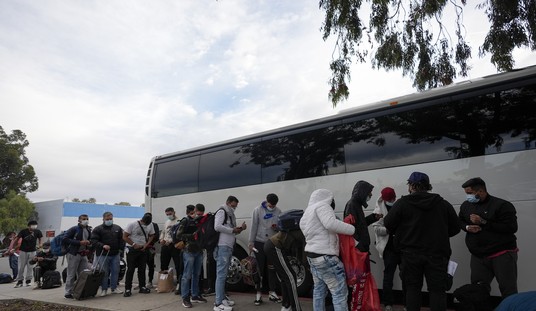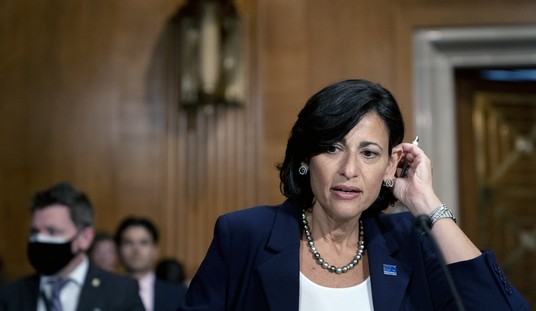“We have striking evidence obtained from Yazidis fleeing Sinjar and some who escaped death, and also crime scene images that show indisputably that the gangs of the Islamic States have executed at least 500 Yazidis after seizing Sinjar,” Sudani said in a telephone interview, in his first remarks to the media on the issue…
“Some of the victims, including women and children were buried alive in scattered mass graves in and around Sinjar,” Sudani said…
“The terrorist Islamic State has also taken at least 300 Yazidi women as slaves and locked some of them inside a police station in Sinjar and transferred others to the town of Tal Afar. We are afraid they will take them outside the country.”
U.S military forces continued to attack Islamic terrorists in northern Iraq on Sunday, successfully conducting several airstrikes from a mix of manned fighter jets and drones to defend Kurdish forces near Irbil, according to the United States Central Command, or CentCom.
A CentCom release said that at approximately 2:15 a.m. ET, “U.S. aircraft struck and destroyed an (Islamic State of al-Sham and Iraq, or ISIS) armed truck that was firing on Kurdish forces located in the approaches to Irbil.”
Several more armed trucks and mortar positions were destroyed in the subsequent five hours, military officials said.
President Barack Obama’s war in Iraq just got more ambitious.
Speaking to reporters before departing for a two week vacation with his family on Martha’s Vineyard, President Obama said the U.S. had to make sure the Islamic State “is not engaging in actions that could cripple a country.”…
No wonder the president said the new military campaign would last months and not weeks.
All of these goals are fine as they are, but they go way beyond the mission Obama spelled out on Friday in a formal notification to Congress that he was launching air strikes inside of Iraq.
Buoyed by U.S. airstrikes the previous day, Kurdish pesh merga fighters said they pushed back an attempt by the extremists to overrun one of their artillery positions on the northern edge of the dust-blown town of Makhmour, south of Irbil. Makhmour was seized by Islamic State fighters Thursday.
At the same time, however, commanders said Islamic State fighters had begun to return to positions that U.S. airstrikes had forced them to flee — a reminder that the so-far limited intervention may represent only the beginning of what President Obama warned Saturday could be a long campaign. Hours later, the U.S. military announced it had carried out four more airstrikes, in the Sinjar area farther west…
[T]here was little indication the airstrikes had done much more than slow the militant blitz through Iraq and Syria, where Islamic State forces now govern a vast swath of territory in the name of their self-proclaimed caliphate…
Unless the pesh merga are able to make advances, “it would seem likely that further [Islamic State] progress or escalated U.S. airstrikes are the only eventualities,” said Charles Lister of the Brookings Doha Center in Qatar. “Airstrikes by themselves can only ever represent a potential temporary fix against a force like the Islamic State.”
U.S. spy agencies have begun to see groups of fighters abandoning al-Qaeda affiliates in Yemen and Africa to join the rival Islamist organization that has seized territory in Iraq and Syria and been targeted in American airstrikes, U.S. officials said…
Counterterrorism analysts at the CIA and other agencies have so far seen no indication that an entire al-Qaeda node or any of its senior leaders are prepared to switch sides. But officials said they have begun watching for signs of such a development.
The launching of U.S. airstrikes has raised new questions, including whether the bombings will hurt the Islamic State’s ability to draw recruits or elevate its status among jihadists. “Does that increase the spigot or close it?” said a senior U.S. counterterrorism official, who, like others, spoke on the condition of anonymity and noted that U.S. military operations in Afghanistan and elsewhere have crippled al-Qaeda but also served as rallying cries against the United States…
“It’s not to the point where it’s causing splintering within the affiliates,” said the senior U.S. counterterrorism official. But the defections have accelerated in recent months, officials said, and also involve fighters from groups in Libya and elsewhere that are not formally part of al-Qaeda.
The likely increased terrorist threat in the West that will arise in the coming weeks and months from U.S. air strikes in Iraq should be weighed against the risks of letting ISIS grow unchecked.
If ISIS is able to consolidate its territorial gains, it could set up training camps to rival any run by al Qaeda in Afghanistan before 9/11. Though its focus may be in Iraq and Syria for now, its viscerally anti-Western ideology means it would be foolish to discount it as a major potential future threat.
Though the unfolding humanitarian crisis in Iraq may have left the Obama administration little choice but to act, the concern is the limited US aerial campaign has now stirred the hornet’s nest without doing anything to decisively degrade ISIS.
And there could be one other unintended consequence. A rally-round-the-flag effect may now strengthen the ISIS position in the global jihadist movement, leading to even higher levels of fundraising and recruitment.
Analysts and U.S. officials estimate ISIS has as many as 10,000 fighters in Iraq and Syria, including those who were freed from prisons by ISIS and Sunni loyalists who have joined the fight as the group advanced.
But that number likely doesn’t include these latest recruits, mostly young men between the ages of 16 and 25 who are primarily poor, unemployed and lack an education, the two Iraqi senior defense officials told CNN…
“Once they are in, (ISIS) gives them cars to drive, guns, cell phones and cash money,” said one man, who lives in Mosul and has direct knowledge of ISIS recruit efforts.
In Mosul, for example, ISIS recruiting efforts appear to begin at information centers that have been set up around the city.
Chris Turpen of Chandler, Arizona, a 45-year-old architectural project manager, also sees a U.S. responsibility to Iraq. That troubles him.
“Once you break it, you own it. But it’s a war that will never be won,” Turpen said.
The Islamic State fighters are fanatics who “will never go away,” he said. “Don’t get me wrong, we should kill every one of them, but we’ll never get there. These are people that just hate America.”
He thinks that Obama “had to go back in.” The president has promised not to send ground troops, but Turpen would not mind if that happened.
“It’s a classic example of choosing the wrong that’s more right,” he said.
“The failure to help build up a credible fighting force of the people who were the originators of the protests against Assad—there were Islamists, there were secularists, there was everything in the middle—the failure to do that left a big vacuum, which the jihadists have now filled,” [Hillary] Clinton said…
“You know, when you’re down on yourself, and when you are hunkering down and pulling back, you’re not going to make any better decisions than when you were aggressively, belligerently putting yourself forward,” she said. “One issue is that we don’t even tell our own story very well these days.”
I responded by saying that I thought that “defeating fascism and communism is a pretty big deal.” In other words, that the U.S., on balance, has done a good job of advancing the cause of freedom.
Clinton responded to this idea with great enthusiasm: “That’s how I feel! Maybe this is old-fashioned.” And then she seemed to signal that, yes, indeed, she’s planning to run for president. “Okay, I feel that this might be an old-fashioned idea, but I’m about to find out, in more ways than one.”
Lindsey Graham on Sunday said that President Obama ordered airstrikes on ISIS targets in Iraq in order to “avoid a bad news story.” The strikes, he argued, will not prevent the jihadist group from tightening its grip over the country or from plotting attacks on the U.S.
Via the Corner.








Join the conversation as a VIP Member